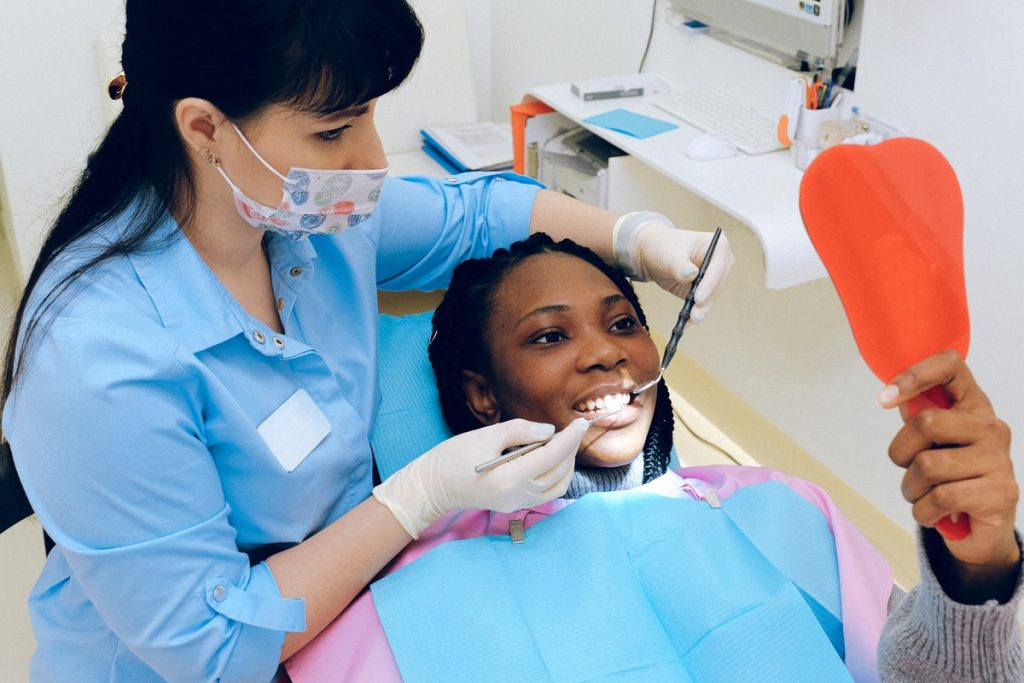Our teeth, the most challenging part of our body, play an essential role in our lives and overall health. They help us chew and digest our food, define our face shape, help us enunciate words clearly, and gives us a more pleasant appearance. That’s why it’s essential to take care of them as they help build our confidence and significantly impact our personality, social life, career, and whatnot.
Because of this, it’s only fitting that we put importance into giving the best care possible for our oral health. Surprisingly, dental care goes as far back as 500 BC. That means that our ancestors already had their ways to clean their teeth as much as common knowledge on keeping them strong.
In a 2015 report from the American Dental Association, the attitude towards oral health and well-being in the United States remains consistent. 97% said they value their oral health and agree to pay regular visits to their dentists. 82% also believe that having straight, white teeth will give you a better advantage in life.
But despite its importance, most people are still afraid of having their teeth checked. The main reason for this is the cost. Regardless of age, income, or source of dental benefits, 59% of Americans said having their teeth checked to take up a more significant chunk of their budget. 22% are afraid of the dentist, while 19% find the location and time inconvenient.
The domino effect
Prevention is better than cure, and oral health is no exception. Poor oral hygiene affects your mouth negatively. It causes bad breath, gum disease, infection, and eventually tooth loss. Bad oral health is also one factor when it comes to problems in our respiratory system, such as pneumonia and acute bronchitis.
Neglecting it, however, will lead to more severe problems. For example, a misaligned bite or malocclusion can include crooked teeth and crowded teeth, making cleaning the mouth difficult.
When left untreated, it will lead to other illnesses such as chronic headaches, tooth loosening, muscle tension, strains in your jaw joint, or even gum disease. This will now increase your risk of stroke, diabetes, arthritis, periodontitis, and so on. It pays to remember that our oral health is linked to our overall health, so it’s not surprising that diseases such as malocclusion can trigger systematic issues in our bodies.
What can you do?
The underlying cause of malocclusion varies. It could be hereditary, prolonged use of pacifiers or baby bottles, accident or injury, tumors, and so on. That is why it’s imperative to visit your dentist to prevent them before they could cause any further damage.
However, in some severe cases, a visit to your orthodontist is recommended. It also pays to know that there are several categories that malocclusion can be identified with:
Class 1
This is the most common where the teeth slightly overlap the lower teeth more than they usually should.
Class 2
This is more commonly known as an overbite. It happens when there is a severe overlap between the upper jaw and teeth with the bottom teeth.
Class 3
Prognathism or underbite is what this category is all about. This is when the lower teeth overlap the upper teeth because the lower jaw juts forward.
Among these categories, there are also several types that malocclusion is identified with. And each class is treated differently with a different kind of orthodontic device.
Diagnosis
Fortunately, malocclusion can be diagnosed by either a dentist or an orthodontist depending on the severity. Procedures include X-rays, impressions, and digital scans. Remember that a proper diagnosis crucial in establishing treatment goals.
Treatment
In modern orthodontics, treatment of malocclusion can be treated depending on the type of abnormalities and tooth features. For example, braces can be used for mild cases, but it is not recommended for severe ones.
Other treatments include tooth extraction, reshaping teeth, plates or wires to stabilize the jawbone, and the removal of a mouth appliance to improve the alignment of the bite. Several factors also need to be taken into account, including age, overall patient’s health, medical record, and severity of the condition.
The longevity of our life is linked to healthy oral hygiene. So brushing twice a day, a regular dental check-up, and paying close attention to your overall health, gum disease, and dental decay are preventable.
Smiling is more effortless than frowning, and a healthy smile is an excellent asset for our visual appearance, mindset, and overall health. Also, it’s free. So ensure to take care of your oral health so that you can enjoy many excellent life-changing benefits.

